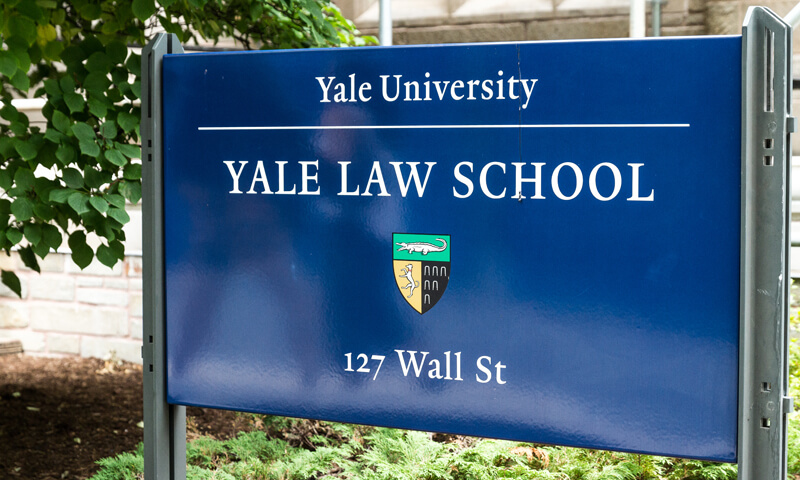Summary: In Harrison Barnes’ latest article offering career advice to attorneys, he delves into mistakes big firm attorneys often make. In his piece, 10 Biggest Career Mistakes Big Firm Attorneys Make (10 Ways to Survive in a Big Firm), Barnes examines the common errors these attorneys make that can ultimately cost them these prestigious positions.
First, Barnes notes some observations he has made over the years about attorneys in large law firms. He states that most attorneys who join these firms may never make as much money again, even in a smaller firm. In large cities, such as New York and Los Angeles, young associates can make over $200,000 per year—more than the average attorney with 15 years’ experience and more than senior attorneys with in-house and government positions.
Most attorneys in large law firms will never again work at such a prestigious firm. Attorneys generally change firms a few times, and usually leave large law firms to shift into smaller firms. Barnes remarks once these attorneys make this transition, the odds are greater than 95% that they will never work in a large firm again. Interestingly, only half the attorneys who work in large firms out of law school will be practicing law in 10 years, but over 85% of those attorneys who join small law firms will be. Barnes hypothesizes that perhaps the attorneys in big law firms simply burn out quicker.
Most attorneys at large law firms will also never work on matters for clients as large and important again. The remainder of these attorneys’ careers will be spent serving smaller clients.
Whereas these observations may seem grim to some, Barnes encourages attorneys to consider working at a big law firm. There are many benefits to doing so: income, prestige, and other benefits. Most importantly, the attorney will be intellectually challenged by the demanding work in a big law firm.
So what are the biggest mistakes big law attorneys can make?
1. Getting Psyched Out
Barnes begins with an anecdote from his days as an attorney at Dewey Ballantine, a large law firm. A mid-level associate joked with a partner that no one had made partner in over 12 years. The partner replied, “That’s because you all leave!”
Usually, the people who “stick it out” are the most successful in the long run. When thinking about the successful partners in firms where he worked when he was young, Barnes recalls that these attorneys worked hard, kept to themselves, did not gossip and certainly had no intention of working at another firm. Law firms have a sense of loyalty to their summer associates and to those who join the firm fresh out of law school. The more time you put in, the more political capital you receive in return.
Why do some attorneys get psyched out? There are a multitude of reasons.
Reviews: Many attorneys have received praise in school and from their parents throughout their lives. This quickly changes once the attorney joins a law firm. Right out of law school, many attorneys simply have no idea what they are doing and make mistakes. The negative reviews these attorneys may receive from a stern partner can cause some of these attorneys to throw up their hands and quit. Instead, Barnes encourages, the right thing to do is to improve on the things the law firm told you. You won’t be profitable for the firm until you’ve committed 3 to 6 years to them. Coincidentally, the great reviews start flooding in at this point. So, it’s important to stick it out until you are profitable for the firm.
It’s also important to remember that firms, at times, may be under pressure to cut associate positions. The negative review comes in as a tool. Barnes states that it may make sense to look around for a job, but that may not work if other firms are also cutting associates.
Difficult Legal Matters: Barnes continues his analysis of the “psych out” in describing how many attorneys cannot handle difficult or undesirable legal matters. Barnes recalls how he had to once set a client straight when that client threatened him. This client just so happened to be in the “mafia,” but that didn’t phase Barnes. He was praised when the client told the partner on the case how much he respected Barnes. Barnes knew the client was testing his limits, and made it very clear to that client that such behavior was not acceptable. The client now knew that the opposing side could not push Barnes around, either.
Aside from difficult clients, big law firm attorneys also have to endure difficult assignments. Barnes has known some attorneys who have simply walked off of a job because of one assignment. Such behavior can kill an attorney’s professional reputation: Barnes recalls how one attorney wanted to do white collar litigation, but was assigned general commercial litigation cases. This attorney refused to do these cases because he wanted to do white collar litigation, until the firm was fed up and fired him—and he was essentially black-balled from nearly every large law firm in the country.
The Lifestyle at Other Firms: Other attorneys are still psyched out by the idea of a better lifestyle at another firm. Many attorneys begin to feel that something is wrong with their current job (perhaps hours, stress, or types of cases) and daydream about other firms that may have friendlier colleagues and fewer hours. However, Barnes states it’s important to remember that the things law firms say when they recruit people are often the opposite of what working there is really like. These firms are businesses, and they must profit by billing hours—so no matter what, attorneys at every firm are going to be required to bill hours.
Bonuses: Poor bonuses also often psych associates out. However, there are many reasons that bonuses could be less than what was expected. Perhaps promises were made to partners, and there simply wasn’t enough left over. A small bonus does not necessarily mean the firm doesn’t like you. It may be a test of your commitment to the firm.
Mistakes: Bad mistakes may also psych young attorneys out. There are endless ways that young attorneys can mess up—from missing filing deadlines to losing a case. Barnes asserts that the worst thing an associate can do is take mistakes too seriously. Learn your lesson and move on.
Poor Treatment by Superiors: Other young attorneys get psyched out when senior attorneys mistreat them. It’s important to remember that one’s actions are a reflection on that person, not on you. Barnes recalls a time when a very important partner yelled at him for having a book the partner needed. “GIVE ME THE F****** BOOK!” the partner screamed. Barnes later found out that the partner was being sued for sexual harassment and malpractice. His outburst had nothing to do with the book Barnes had.
Feeling Disfavored: It’s important to do your work well, first and foremost. Barnes encourages attorneys not to get caught up in a firm popularity contest. He warns, details of your personal life will always be used against you. Be professional with your peers but don’t worry about being buddies with everyone.
Less Work to Do: Some attorneys panic when the work slows down. Just because the firm goes through a slow period doesn’t mean it’s time to look for a new job. Instead, use this time to write memos or publish articles.
Being Around “More Qualified” Peers: Finally, being in the presence of seemingly more qualified peers psyches associates out. It’s important to remember that much of the “praise” other peers may receive is fabricated—some competitive attorneys will exaggerate good reviews and start rumors to hurt coworkers. Barnes states it’s fun to watch these people go down as they play these games—so wait it out, work hard, and you’ll see their actions come back to bite them.
2. Not Billing Enough Hours
In a large firm, you’ll need to bill at least 2,000 hours. Billing 2,500 is better, and if you want to be on track to make partner, bill more than 2,500 hours. With increased billable hours comes job security. After all, this is how you make the firm its money.
Firms can learn a great deal by an attorney’s billable hours. For example, it demonstrates how hard you are willing to work and how motivated you are. It can also demonstrate how your work is perceived by superiors if these superiors steadily give you assignments. Barnes states that you must treat each assignment from a partner as if it were the most important assignment in the world.
Your hours also reflect your attitude and eagerness for work. Barnes notes that, even if you lose a case, partners will respect your effort and dedication to that case.
It’s also important to show that you are able to convince others to give you work. Ask partners for cases, several times if necessary, until the partner starts sending work your way. Clients will also respect your hard work, and your firm will be pleased if the client demands that you work on their case.
Once partners begin giving you more work, knowing that you’ll do a good job, they’ll also begin to like you more. It’s important that you make the partners feel important. In exchange, they will send extra work your way because your professional relationship makes them feel respected.
Finally, your hours reflect your openness to learning. There are many “know-it-all” associates out there who do not listen to partners’ suggestions. This, clearly, is a bad idea. Barnes explains these partners have spent a good part of their lives learning the law, and they enjoy watching young attorneys grow as they are taught. These partners will give you more work if you are willing to accept their guidance.
3. Joining a New Branch Office
Barnes warns that this can be a dangerous move for your large law firm career. Typically, the main branch of an office is going to protect itself and its attorneys first. If firings must happen, the branch office employees will be the first to go. It is hard to have the same relationships with clients and coworkers if you’re 1,000 miles away, and partners at the firm at the main office may never get to know you. Thus, you’re more expendable—and less likely to make partner.
The main offices of a firm also generally have more work, as branches may be created to serve a handful of clients. It’s not rare for branches to get shut down when the work stops. The newest branch of a law firm is the most dangerous. Generally, there may be fewer attorneys available to assist a client at these branches, and the client is going to stick to the main branch of the firm for its legal needs.
4. Sleeping with Superiors in the Office
This should be obvious, but this is a terrible idea all around. Most interoffice romances do not last. If a relationship does become serious, and then the couple breaks up, it can be a major distraction for working together in the future. Unfortunately for the more “junior” employee, this usually means they’re looking for a new job. Barnes notes that, unfortunately, for a woman, the issue presents many challenges because her work will be viewed differently—perhaps she was assigned that case because she slept with the partner, not because she does good work.
5. Working as a Contract Attorney
To large law firms, contract attorneys can be red flags, Barnes explains. Why should they pay you $200,000 per year if you’ll work for a measly $25.00 per hour? Your work could last only one day. Further, are you a contract attorney because no one else will hire you? Why can’t you land a firm position? The nature of contract work is also unappealing and unimpressive to large firms. Why would an attorney waste time reviewing documents instead of analyzing complex matters? Finally, a major concern is that your skills will deteriorate as a document review attorney because the intellectual challenge is not as strong.
6. Taking Too Much Time Off
If you take too much time off from your job, you risk being perceived as lacking drive and commitment to the firm. This can mean your workflow will slow significantly, which can put your job in jeopardy.
The reasons for extended absences can also be viewed poorly by partners and lead to your being fired. The example Barnes gives is “paternity leave.” Barnes states that some associates have taken six weeks off for paternity leave, then wonder why they cannot get work when they return. This is because many of the senior partners were likely out of town working on deals and huge cases while their children were being born, and do not sympathize when an associate requires such an extended absence. In fact, Barnes’ own honeymoon was interrupted when he had to fly to Texaco’s office in Los Angeles for a case, instead of enjoying Hawaii with his new bride. Barnes did not hesitate to accept the partner’s request.
7. Leaving Without Another Big Firm Job Lined Up
Barnes advises to think through leaving your big law firm job very carefully. Once you leave and go to a different law firm, or go to an in-house or government position, the odds of returning to big law firm jobs are slim. This is primarily because large firms feel that the only reason an associate would leave is because 1) they don’t have the nerve and can’t take the big law firm life or 2) they’ve been fired. This perception is nearly impossible to overcome.
8. Being Dishonest
Any lie, no matter how seemingly insignificant it may be, can ruin your career. Barnes describes how an associate was fired when he insisted he had written a short letter that a partner knew the associate had not written. This associate had been with the firm for 10 years, but was escorted out of the building that day. While this may seem extreme, if an attorney cannot be trusted, they are useless. As Barnes puts it, the only thing an attorney has is their ability to be trusted.
9. Talking Poorly about the People You Work For
If you talk badly about the people you work for, it’s always going to get back to them. These people will then be angry with you and will figure out a way to get back at you. You must remember that these people support you and you may need these people later in your career. Therefore, keep all statements about the people you work for positive.
10. Not Understanding the Rules of Face Time
It’s a well-known fact that associates are expected to be at the office before the partners and leave after they leave. This demonstrates to the partners that you are hungry for work and take your job seriously, and it also shows the partners respect. It shows that you’re available and are putting in hours for the firm.
Conclusion: Whereas many of these tips may seem unreasonable, they are the reality of large firm life. If you’ve made it to a large law firm, keep these key points in mind to make the best of your career. Barnes affirms that attorneys who follow these tips almost always do well. Follow the rules, and you’ll kick ass on the law firm battlefield.
Read the full post here: 10 Biggest Career Mistakes Big Firm Attorneys Make (10 Ways to Survive in a Big Firm)
Many big and small law firms are hiring now. Please visit here to know latest updates on LawCrossing.com.
Photo credit: technolawyer.typepad.com











































